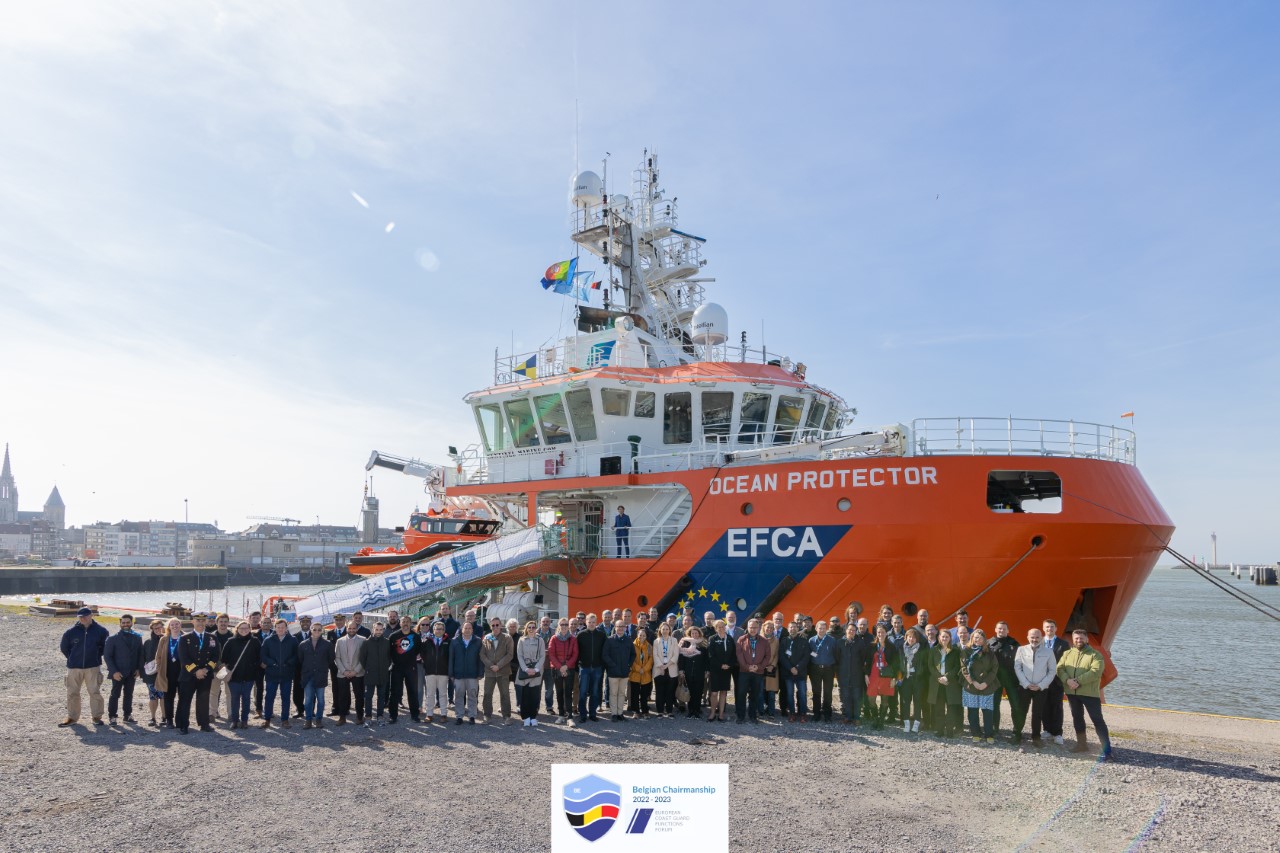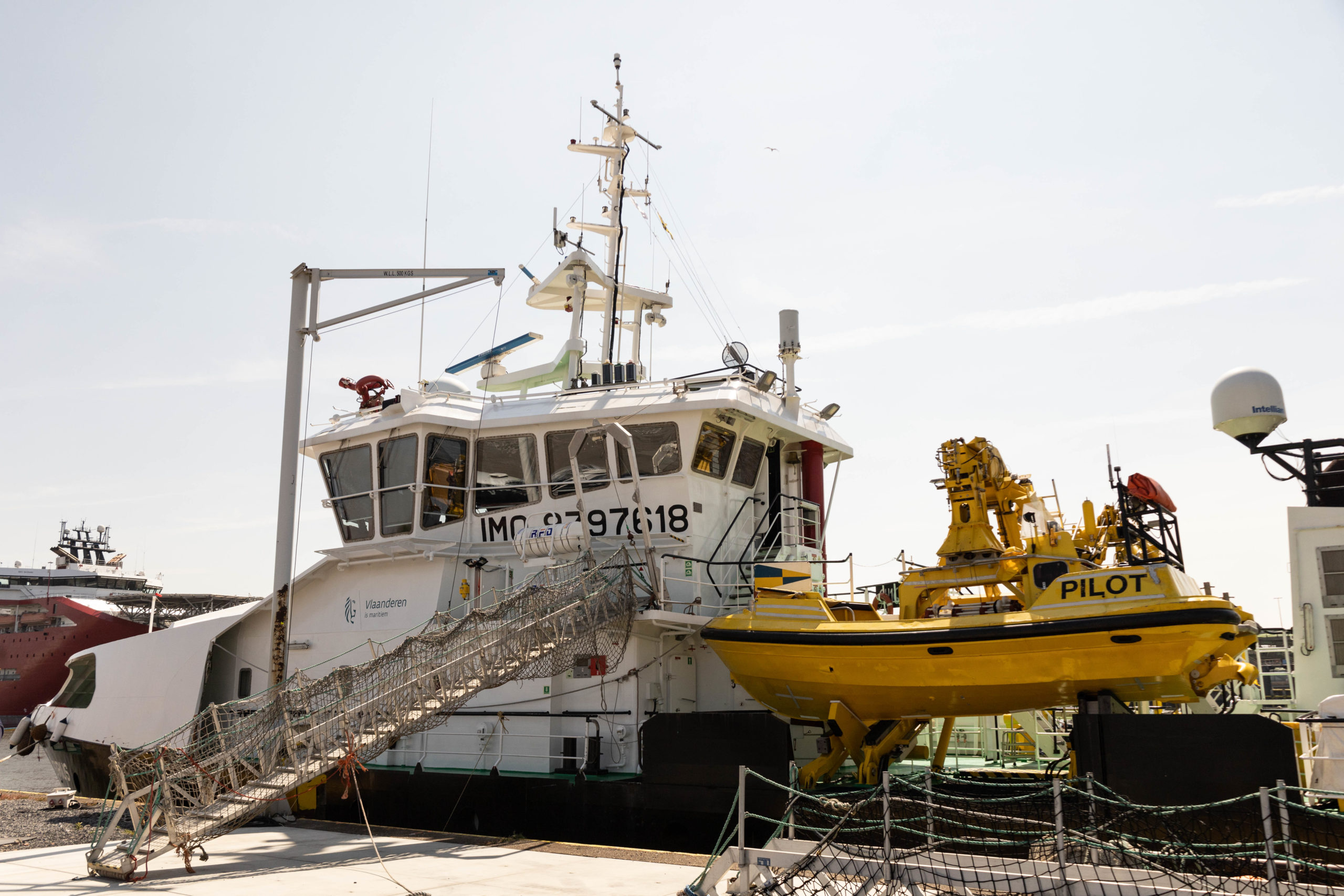What technologies are used and can potentially be used in the future for the monitoring and inspection of fisheries? What are the current and future developments in fisheries control? How does Belgium do it? What does the European Fisheries Control Agency (EFCA) do and how do other European Union coastguard partners conduct fisheries control? How does this work in practice?

The use of evidence based upon innovative technologies in fisheries monitoring and inspection constituted the theme of this third workshop under the Belgian chairmanship of the ECGFF, the European Coast Guard Functions Forum which brings together coastguard authorities of several European countries to work on collaborative issues. The aim of the workshop was to share experiences and good practices within the European Union.
From Tuesday the 2nd of May till Thursday the 4th of May, delegations gathered in Bruges, and went on an excursion to the port of Ostend. In total, there were 119 participants, the majority of whom were physically present, while only a few attended online. Almost all member states of the ECGFF that have a coastline participated, comprising 22 member states.
Piet Pieters, attending chair of the ECGFF opened the workshop in Bruges with a bit of history: “During the Golden Age, Bruges was a thriving seaside trading hub, home to nations from several European countries. It is symbolic that we, as maritime nations, are forging new, forward-looking partnerships with the European Commission and with the specialised European Agencies precisely at this location. Furthermore, what is discussed here is relevant not only to fisheries control, but also to all other coast guard functions.”

During a first session, the Department of Agriculture and Fisheries explained the current and future possibilities on fisheries control and the use of evidence in Belgium. A video was also shown on Flemish fisheries control and on how the EFCA operates in European waters using their own vessel. The EFCA then gave an overview of existing technologies and their potential for evidence collection to support fisheries control. Other agencies (EMSA and Frontex) and participants also shared best practices.
In the afternoon, a visit was planned to some coastguard platforms in the port of Ostend. As such, the participants visited, among others, the Sirius, one of the vessels of the Agency Maritime Services and Coast (MDK), Flemish government organization VLOOT and the Ocean Protector, a vessel of the EFCA, which all play a role in offshore surveillance and control of fisheries. Finally, they visited the Maritime Rescue Coordination Centre (MRCC), where they were given a presentation on incidents involving fishing vessels at sea.
On Thursday May 4th , the practical issues were discussed further. A panel discussion was organized on the use of evidence provided by new technologies. This last day was concluded with a debriefing of the exercise of the Ministry of Defense.
The Coast Guard is a unique Belgian organisation that pools and coordinates the expertise of 17 partners in the maritime sector to ensure safety and security at sea. Partners also include the Scientific Service ‘Management Unit of the Mathematical Model of the North Sea (MUMM)’, part of the Royal Belgian Institute of Natural Sciences (RBINS).
In 2022-2023, the Belgian Coast Guard chairs the European Coast Guard Functions Forum (ECGFF). Together with the European agencies FRONTEX, EMSA and EFCA, it will organise a number of workshops during the year. In cooperation with DG Mare of the European Commission, it will also organise a Cybersecurity Working Group and the summit taking place at the end of September 2023.
